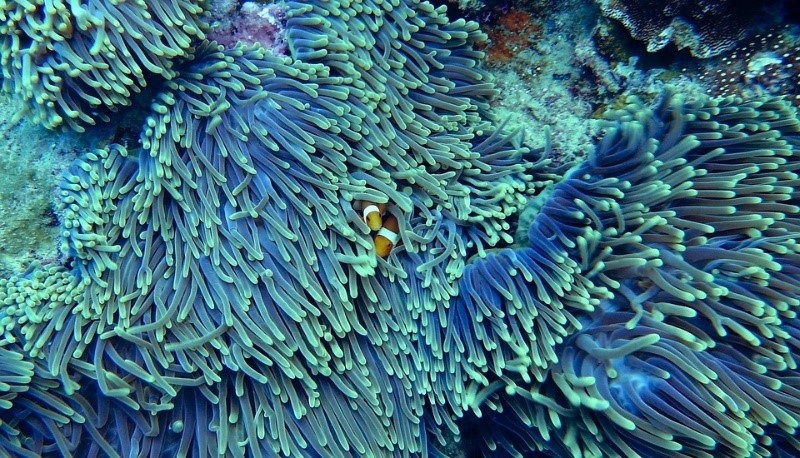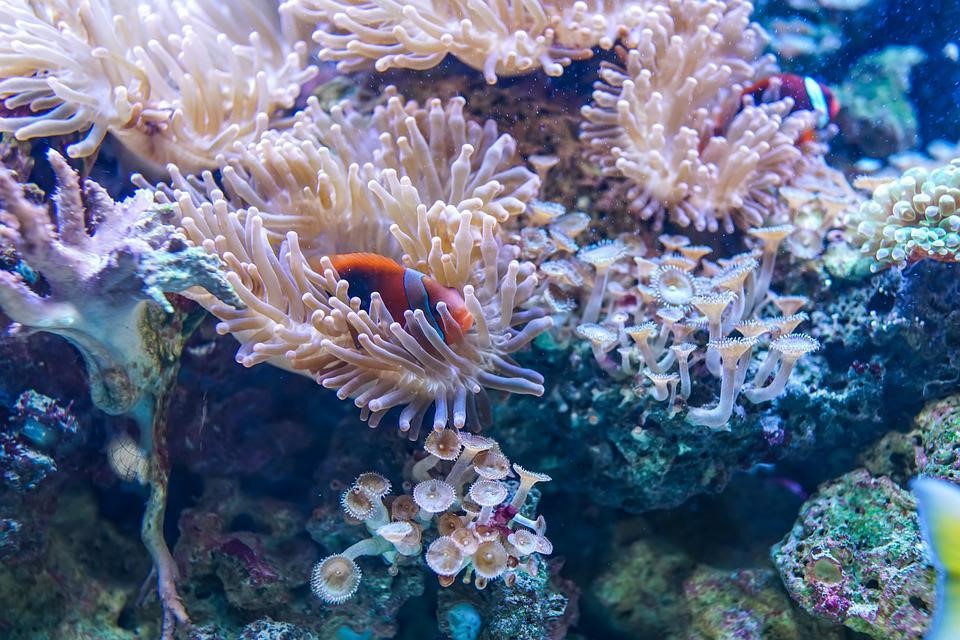A Little Bit Further Back
About 65 million years ago, it is said that dinosaurs went extinct after living on Earth, coinciding with the fall of a giant meteorite that changed the Earth's climate. These giant reptiles did not survive; they forever perished in a famous mass extinction known as the “fifth mass extinction”. This event is usually used to date events in Earth's history, but going back even further, almost 295 million years ago—around the time of the dinosaurs—coral reefs appeared, and they were very similar to the reefs we see today. The fossil record tells us that the oldest coral reef fossils date back to 535 million years ago.
With the passage of time, humans started to settle on Earth, think, experiment, research, and produce. There were passionate people such as Aristotle's pupil, Theophrastus (372–285 BCE), who searched aquatic creatures; he found a creature among plants and animals and named it "Kouralion". Human curiosity did not stop there; after 2000 years of discussions, it has been determined that they are animals related to anemones and jellies, usually found in colonies, and people enjoy watching them. Yet, it turns out that they are in serious danger due to climate change.

Image: link
How are coral reefs affected by climate change?
Climate change affects coral reefs clearly by increasing greenhouse gases in the atmosphere due to several factors, including fossil fuel combustion, industrial production, adding fertilizers to crops, deforestation, and livestock farming. How does this effect occur? Well, simply put, climate change leads to:
Heat stress destroys marine habitats due to high temperatures; this negatively affects coral reefs and makes them vulnerable to infectious diseases and bleaching.
Climate change is associated with an increase in the level of carbon dioxide in the atmosphere. This leads to a reduction in pH levels, discouraging coral reef growth.
As sea levels rise, the water carries more sediment that eventually settles on top of the coral reefs, affecting their growth and can lead to their smothering.
Climate change causes severe storms, which may lead to the destruction of coral reefs.
- Changes in Ocean Currents
Ocean currents affect and change the temperature of water systems, which contributes to the lack of food for corals.
- Changes in Rate of Precipitation
Rain from clouds contributes to the runoff of fresh water, pollutants, and sediment. This prevents light penetration in water or reduces its amount, which is harmful to corals.

Image: link
All the consequences of climate change contribute to the destruction of coral reefs, and 90% could disappear by 2050. A study published in Science journal in November 2015 indicated that coral reefs are subject to several disruptions; for the above reasons, coral reefs are facing severe threats. More importantly is the question of:
Can coral reefs endure climate change?
Well, while it is not entirely clear, a study conducted by the National Oceanic and Atmospheric Administration (NOAA) indicates that coral reefs have been able to adapt to emerging climate change to some extent. However, they will probably be unable to keep pace with these changes until the end of the current century unless carbon dioxide emissions are reduced. The study was published in the Global Change Biology journal in September 2013.
What would happen if all coral reefs disappeared?
If coral reefs disappeared, several marine species and organisms whose existence depends on coral reefs would cease to exist, which affects biodiversity. This, in turn, negatively impacts the economy and human life in general.
References
citeseerx.ist.psu.edu
conservation.reefcause.com
oceanservice.noaa.gov (1)
oceanservice.noaa.gov (2)